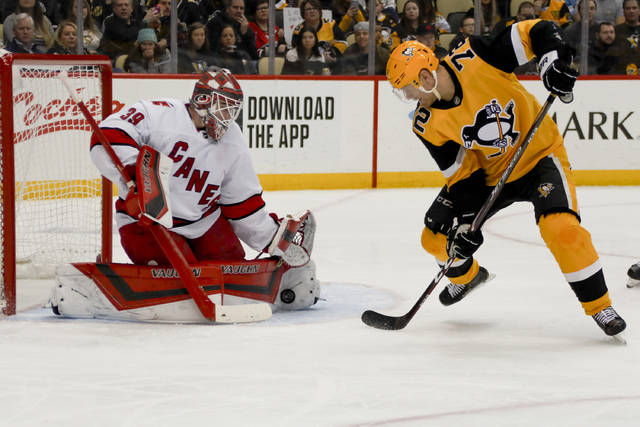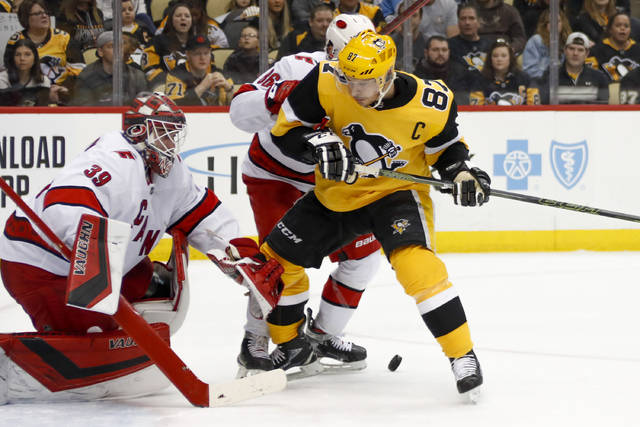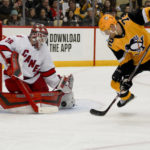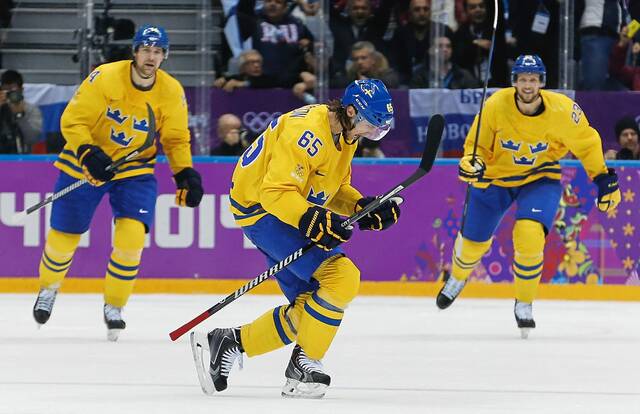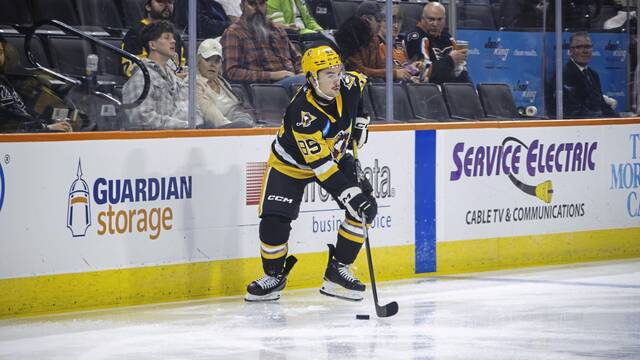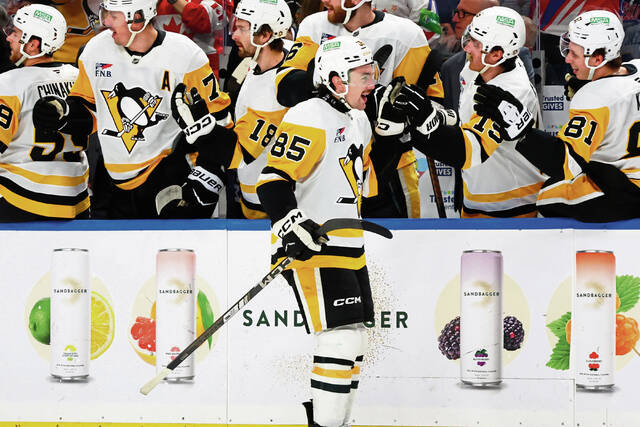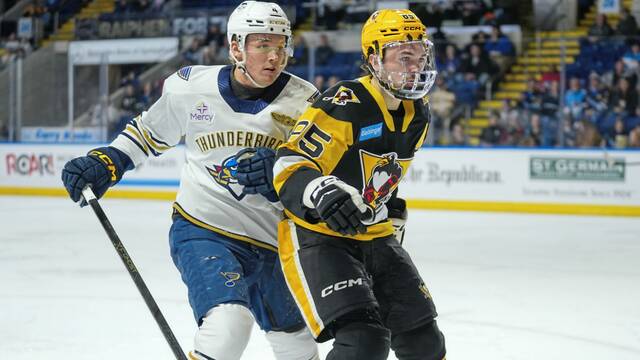Most of the Penguins’ practices are fairly regimented affairs that usually last a brisk-but-intense 50 minutes.
They will work on whatever areas of the game they feel need sprucing up, and that can vary from day to day.
The one constant is how they end: They seemingly always end practices with power-play drills.
The top power-play unit will “win” a faceoff in the offensive zone and move the puck around the offensive zone against an odd collection of penalty killers offering only passive resistance.
A second power-play unit will do the same in an alternating sequence at the other end of the rink.
On Wednesday in Cranberry, things were different. The Penguins worked on their zone entries with the power play, making all five attacking players enter the offensive zone in a cohesive fashion.
They also switched personnel, with defenseman Justin Schultz taking over at the point on the top unit and defenseman Kris Letang moving to the second unit.
“We just wanted to see different looks (Letang) is going to see time on the power play,” coach Mike Sullivan said. “He always does. He’s an elite defenseman. We haven’t gotten (Schultz) as many opportunities to practice with the top unit. We thought we’d make some of those personnel adjustments and see where it goes.”
It has gone somewhat astray, to be frank.
Sure, the Penguins have power-play goals in their past four games, their second-longest streak of the season. And they have gone 4 for 20, which equates to a decent conversion rate of 20%.
But in each of their past two losses, they have failed to score at critical junctures that could have altered the course of those defeats.
During Saturday’s 5-2 home loss to the Washington Capitals, the Penguins were in a 1-0 hole early in regulation but had an opportunity to tie the score with a five-on-three power-play opportunity that lasted 1 minute, 25 seconds relatively early in the first period.
The result? One shot by forward Evgeni Malkin.
The Capitals killed off the extended two-man advantage, scored three goals in the opening period and never looked back.
Then Sunday, in an ugly 6-2 loss to the Carolina Hurricanes, the Penguins seemingly were in control after building a 2-1 lead after one period, thanks, in part, to a five-on-three power-play score by Malkin. They were in a position to pad that lead as they were gifted two five-on-four power-play opportunities early in the second period.
They performed better from the standpoint that they recorded three shots on each opportunity but could not solve goaltender Alex Nedejkovic, who was assigned to Charlotte of the American Hockey League a day later.
“Those were really big penalty kills just to stay in the game at 2-1,” Hurricanes forward Justin Williams said. “Very important. That’s certainly not lost with us.”
Less than three minutes after the second power-play chance expired, Hurricanes defenseman Jaccob Slavin scored an even-strength goal to forge a tie at the 13:07 mark. After Penguins forward Evan Rodriguez rang a short-handed wrist shot off a post then took a holding minor in a 9-second sequence, the Hurricanes took a lead for good with a power-play goal by defenseman Jake Gardiner at 18:04 of the second.
“A period of time there in the second where we didn’t capitalize on our power plays,” Penguins forward Sidney Crosby said. “We hit a post, then they come the other way and score.”
So the Penguins’ power play has been scoring, just not when it really needs to.
“It’s probably a microcosm of our overall game,” Sullivan said “We’re just a little bit disconnected. We’re not executing. We’re not anticipating. A lot of it is the play away from the puck. Just the puck support and coming to the puck and providing options for the puck carrier.
“When our power play is at it’s best, you see that instinctive play on display. These guys, they anticipate. They get to spots. They’re always one step ahead of the (opposing) penalty killers, and right now, we’re not. That’s an important aspect of getting back to the power play that we’re all accustomed to watching.”
Getting that power play back doesn’t appear to be an overly complicated process. In fact, the players suggest the opposite.
“Make it a little bit more simple,” forward Jason Zucker said. “Start shooting pucks from bad angles and bad areas and get dirty goals. Not every one is going to look like (Malkin’s goal Sunday), with one-timers from the point going in. We’re doing some good things, but we can do a lot more better.”


